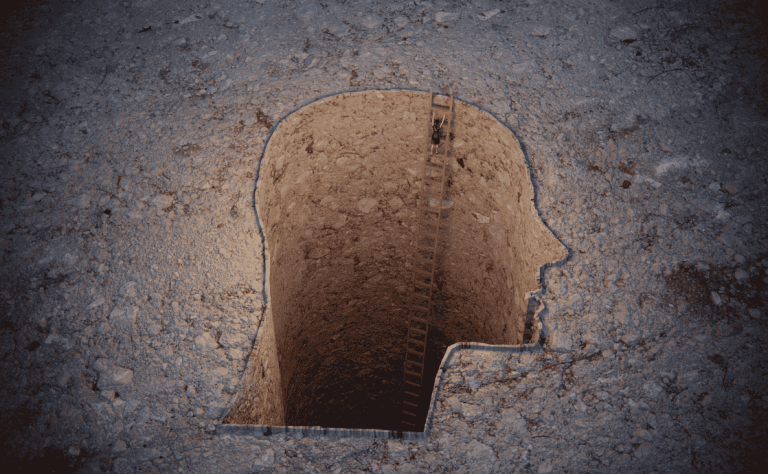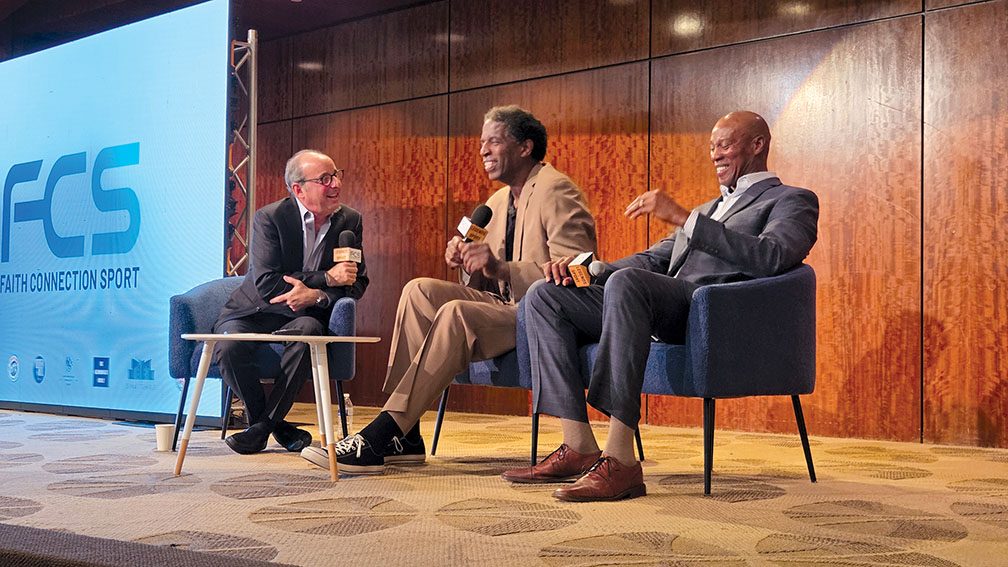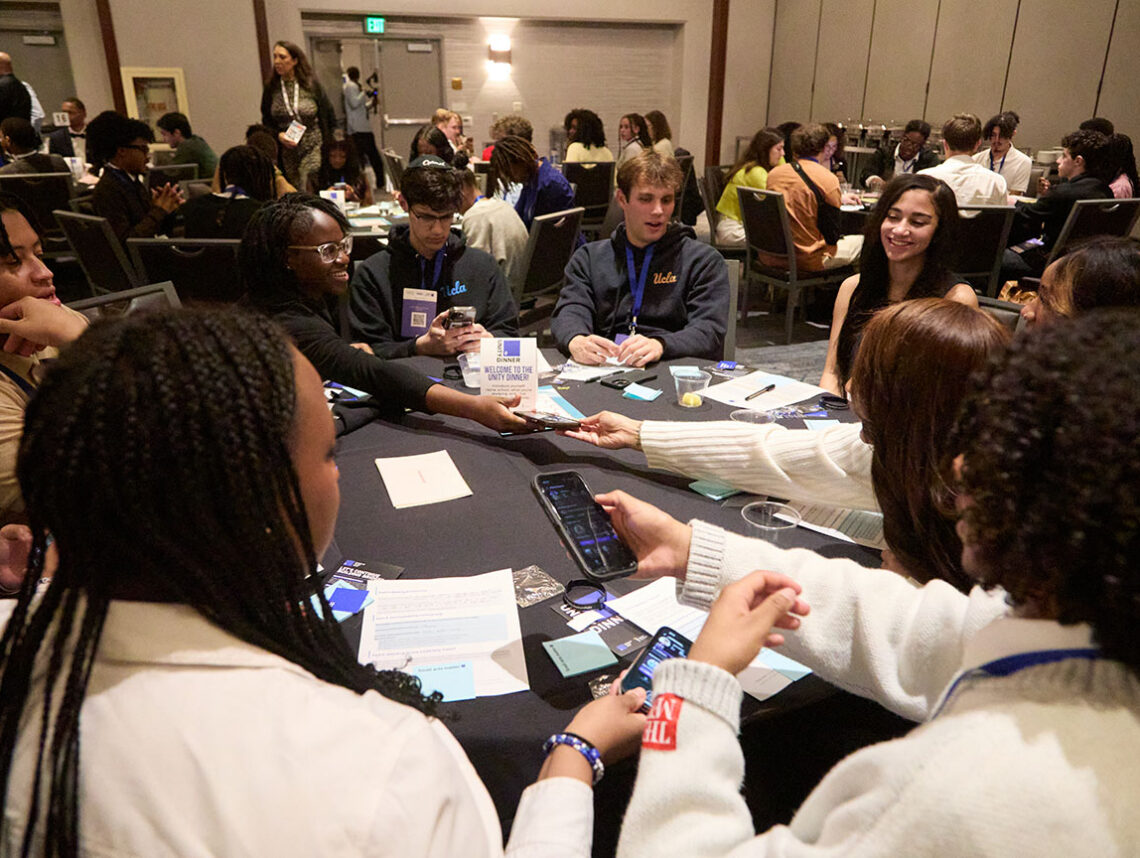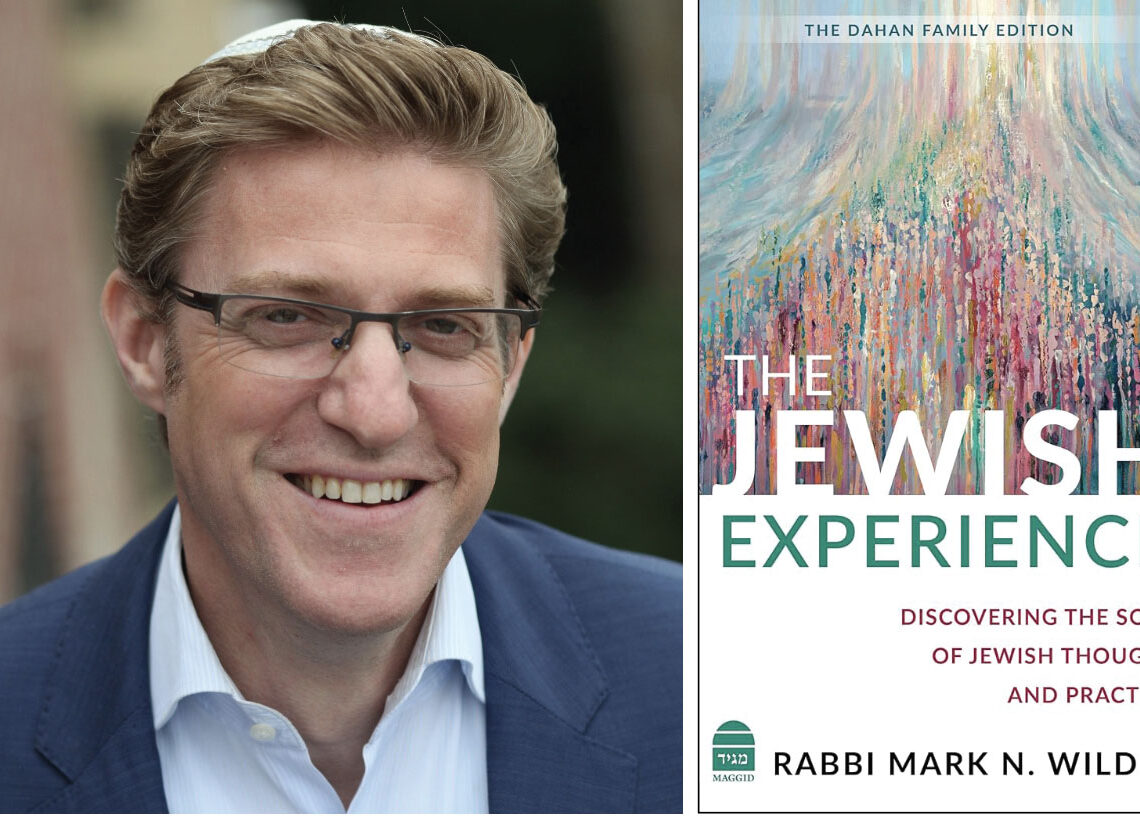INDIANAPOLIS — The Board of Directors of the Center for Congregations is pleased to announce the appointment of Elise Erikson Barrett as its new President, effective March 2, 2026. Barrett, a leader with extensive experience in supporting congregational life and philanthropic strategy, will succeed Tim Shapiro, who is retiring after 23 years of transformative leadership.
Barrett brings to the Center a unique blend of national perspective and deep local roots. Most recently, she directed a coordination program for Lilly Endowment Inc.’s National Initiative to Address Economic Challenges Facing Pastoral Leaders. In that role, she convened leaders from 66 church-affiliated organizations for mutual learning and supported their efforts to reduce or alleviate financial pressures faced by pastors. Additionally, she recently earned a doctorate in American studies from Indiana University, where she focused her research on congregational studies and the economic practices of faith communities.
“The board unanimously approved the search committee’s recommendation of Dr. Elise Erikson Barrett to be the next president of the Center for Congregations. Her ability to think creatively about the future of congregations, lead a talented staff to imagine ways to support these congregations, and her commitment to the mission of the Center, were crucial to her selection. She has the vision and leadership qualities we were hoping to find in our next president. We are excited to work with Elise and write the next chapter as the Center lives into its mission.”
— Elizabeth Clay, Chair, Center for Congregations Board of Directors
The selection follows a comprehensive national search conducted by the Board with the support of executive search firm Isaacson, Miller.
“After reviewing more than 80 candidates, the search committee was truly excited to identify Elise as the candidate we would recommend to the board. Her unique combination of pastoral experience, academic rigor, and years of grant management stood out to us as the ideal fit to build upon Tim Shapiro’s excellent legacy. The Board agreed and unanimously affirmed her as the new president.”
— Dick Hamm, Chair, Center for Congregations President Search Committee
Barrett is no stranger to the landscape of Indiana faith communities. A former pastor, she has served in a variety of roles encompassing ordained leadership, youth and worship ministry. She is grateful to have experienced faith in community in congregations ranging from 30 to 2100 members, in rural, suburban, and urban settings in both Indiana and South Carolina. She holds a Master of Divinity from Duke Divinity School and has previously worked with the Indiana Philanthropy Alliance. Her work has consistently focused on the “ecology of support” that enables congregations to thrive.
“I am grateful for my Hoosier home, and for the gift of the generations of family, friends, and colleagues who join me in a deep love for the people, communities, and natural beauty that make Indiana such a special place. Our Indiana congregations practice a uniquely life-giving form of community. It is rare to find places where neighbors can connect to serve something bigger than themselves, offer grounded love with and to their communities, and deepen their own moral and spiritual formation by connecting to their traditions’ wisdom and faith practices in ways that are both rooted and creative. Alongside the Center’s experienced and gifted staff, and building with gratitude on Tim’s faithful leadership, we will continue our commitment to tend the Center as a joyful and energetic node that celebrates and supports Indiana’s congregational leaders.”
— Elise Erikson Barrett, Incoming President, Center for Congregations
To ensure a seamless transition, Shapiro will remain with the Center in an advisory capacity through mid-2026.
“Elise Erikson Barrett is definitely the right leader for the Center for Congregations at this moment. She really understands Indiana’s religious landscape and has a genuine passion for congregational life. Elise brings both the expertise and the vision we need. She’s already earned enthusiastic support from our staff, and I’m confident congregations across the state will find her leadership both inspiring and supportive. I’m honored to welcome Elise as she takes the Center forward.”
— Tim Shapiro, President, Center for Congregations
As the Center for Congregations prepares to transition to a new season with a new leader, we honor Tim’s leadership. Plans to celebrate his service are forthcoming and will be shared soon. Please join the Center for Congregations in celebrating Tim’s transformational impact and welcoming Elise as our incoming president.
###
The Center for Congregations is funded by the generosity of Lilly Endowment. For more information about the Center for Congregations, please visit: centerforcongregations.org
Media Contact:
Christos Reid
Marketing and Communications Strategist
This email address is being protected from spambots. You need JavaScript enabled to view it.
317.237.7799
###
Disclaimer: The views and opinions expressed in this article are those of the authors and do not necessarily reflect the official policy or position of RNS or Religion News Foundation.
 The late conservative activist Charlie Kirk pens a love letter to the Jewish Sabbath, and invites the world to reclaim its humanity.
The late conservative activist Charlie Kirk pens a love letter to the Jewish Sabbath, and invites the world to reclaim its humanity.

 As the NBA All-Star Game brought the world’s top basketball players to Los Angeles, Sinai Temple and Fabric, a direct-to-fan mixed-media platform, teamed up to host a summit exploring how sports and faith can bridge divides, combat extremism and fight hate.
As the NBA All-Star Game brought the world’s top basketball players to Los Angeles, Sinai Temple and Fabric, a direct-to-fan mixed-media platform, teamed up to host a summit exploring how sports and faith can bridge divides, combat extremism and fight hate. The feel-good gathering, held at the Renaissance Hotel near LAX Airport, drew approximately 130 students.
The feel-good gathering, held at the Renaissance Hotel near LAX Airport, drew approximately 130 students. Wildes’ book presents, in a warm and accessible manner, the core beliefs and practices of Judaism.
Wildes’ book presents, in a warm and accessible manner, the core beliefs and practices of Judaism.